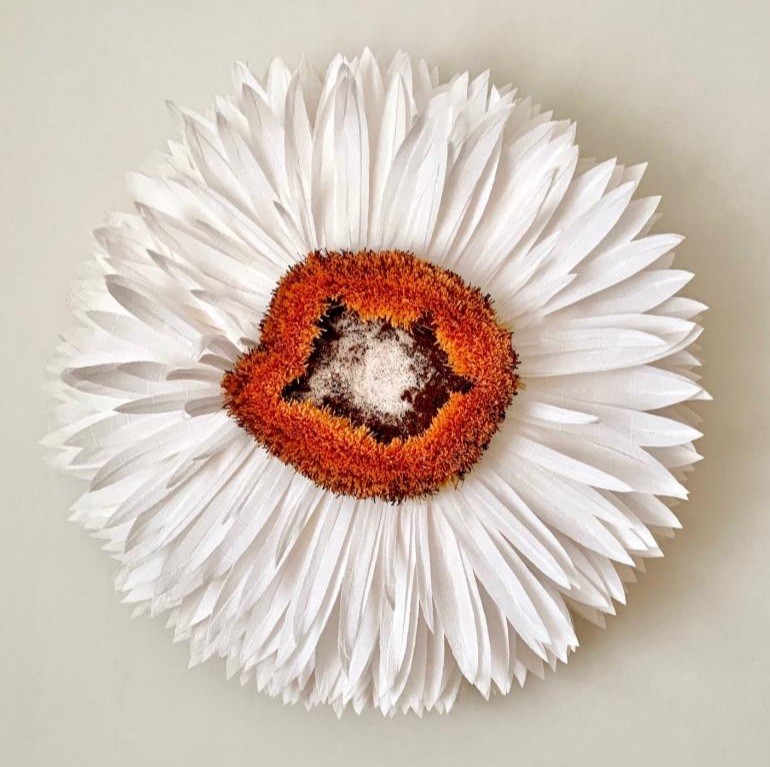1275 Minnesota St /
Eleanor Harwood Gallery
Opening Reception: April 19th | 6pm–8pm
What Befell Us is a new body of large-scale botanical sculpture created by Bay Area artist and author Tiffanie Turner. Her new work, the heads of seven giant flowers, is Turner’s continued meditation on our tolerance of aging and imperfection, on what we consider ugly and what we consider beautiful, and on the high cost of these pursuits on our society and the natural environment.
Turner selects her floral specimens and the afflictions she would depict with them from a vast variety of flowers that appeal to her due to form, texture and color. She then pairs them with physical manifestations of imperfection, drawing from aging and deformities in plant life. The deteriorations evoke issues of climate change, from the effects of rising temperatures on pollen quality, drought, and damage to blossoms due to earlier and later frosts, all caused by rapid environmental shifts.
Turner turns to the personal infusing her worries about our looming global climate crisis with her own concerns about the value and perception of women’s faces and bodies as they age. The damaged goods of both aging women and flawed flowers ask the question “What Befell Us” at a personal and global scope. Turner’s investigations quite literally blow up the idea that damage is un-lovely. Her sculptures are undeniably exquisite, the products of intense labor, each head sculpted from hundreds (or thousands) of hand-shaped petals.
She asks, “Why do we wrap our most perishable fruits and vegetables in packaging that will pollute the planet for thousands of years?” and “Why did I become invisible when I turned 40, and at what lengths would I go to to turn back time?”. She sees parallels between the absurd pursuits of our culture that destroys our environment, and the absurd expectations she feels as a woman in this world. She further inquires, “Why am I ashamed to be older?” and “Why do people find these distorted and decayed flowers lovely, but find dry and sun damaged skin (the result of a full childhood) unsightly? Could this ever change?”.
The pieces in this exhibit depict what ugly, old, or abnormal would look like in the beautiful head of a flower. Some of the pieces are obviously decaying. Some are distorted by age and desiccation. One piece, a rose, arguably the planet’s sexiest flower, is sagging toward the floor, prolapsed as if its most private parts cannot be contained anymore. “Platinum Blonde”, a giant dahlia, is very irregular around the outer petals, as it grows in nature. It is vulgar in size, imperfect in silhouette, yet beautiful. The oddity of Turner’s approach is that the discoloration, the non-perfect becomes enchanting, arguing for an acceptance of expressions of age, wilts, and mutations in the flowers and our own bodies.
